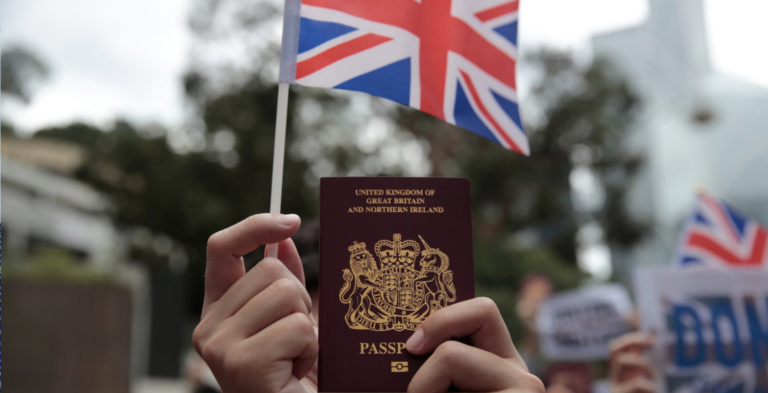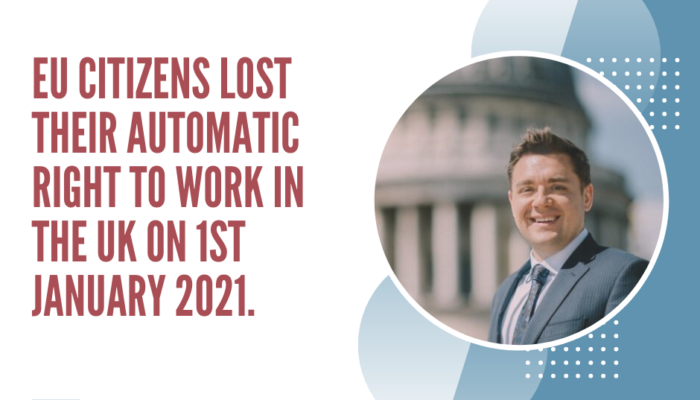10 Year Long Residence Route to Settlement

The Ten year route to settlement is one of the most viable options to apply for Indefinite Leave to Remain. This route might be suitable for the majority of people living temporarily in the United Kingdom who have accumulated 10 years of lawful residence in the country. But as with most other immigration routes, there are many details a potential applicant has to discover in advance.
What Is The 10 Year Long Residence Route to Settlement?
As its name implies, this route allows a person to apply for Indefinite Leave to Remain after 10 years of legally residing in the United Kingdom. This route is applicable to various immigration categories, including those on work visas, student visas, and family visas.
Of course, not everyone will be able to take this route, as there are several requirements that will be discussed in the following section. However, this is one of the most universal options to settle in the UK, as these requirements are rather simple and cover a huge demographic of immigrants.
Requirements For 10 Years Long Residence ILR
To be eligible for settlement through the 10-year Long Residence route, certain criteria must be met. Here are some key requirements:
- Applicants must have continuously resided in the UK for 10 years, without any significant gaps or absences. Short trips abroad for holidays or business purposes are generally allowed within reasonable limits. The person has to remain in the country for this period of time, and the residence has to be continuous. What constitutes a continuous period will be covered in the next section.
- The person applying for the 10 year Long Residence route visa and settlement should not have violated any immigration laws of the United Kingdom during their 10-year stay in the country. Those who spend any of this time in the UK without a status will not be approved.
- The 10 years spent lawfully in the UK cannot include any time spent as a Visitor, a Short-term Student (English language), or a Seasonal Worker. It also does not include time spent with an exemption from immigration control or time spent on immigration bail.
- The Home Office requires you to demonstrate your knowledge of the English language in order to be approved. The level of English language needs to be at CEFR level B1 or above. This may not be an issue in some cases, as many migrants have already been required to meet this level previously in their immigration history.
- The Home Office requires you to demonstrate knowledge of life in the UK by passing a Life in the UK test.
- The Home Office states that applications may be approved in case where there are no public interest reasons for denying them. Essentially, this may occur in very specific situations, where the government has determined to deny the application, even though the applicant matches all the other criteria.
What is continuous residence?
As mentioned in the previous section, there should not be a break in the 10 years of long residence in order for the application to be approved. There are three different scenarios, in which the continuous 10-year residence in the UK is considered to be broken:
- Where the applicant has left the country for more than six months in a row.
- Where the total amount of time the applicant has stayed outside of the United Kingdom has exceeded 18 months.
- Where the applicant has been removed or deported, or has left the United Kingdom after being refused leave to enter or remain
- Where the applicant has left the United Kingdom and, on doing so, evidenced a clear intention not to return.
- Where the applicant has left the United Kingdom in circumstances in which they could have had no reasonable expectation of lawfully being able to return.
In some cases, exceptions to the rules limiting absences from the UK might be considered by the Home Office. In case the person has compelling reasons why they did not manage to return to the United Kingdom within the required time, or why they had to spend a certain period outside the UK, they might still be considered for settlement in the UK on the basis of long residence. Most commonly, such exceptions may be applied in case the personhad exceptional reasons for spending excessive time outside the UK. There are few specific requirements here, and each case is considered individually.
How to apply for Indefinite Leave to Remain on the 10 Year Long Residence Route?
As one would expect, an application for under the 10 year Long Residence route should be made after residing in the country for the stated period of time. It is also possible to apply up to 28 days before the accumulated residence period reaches ten years. Applications are made on the official website of the Home Office. They must be submitted online, and there is an option to speed up the process for an additional fee.
Documents Required For a 10 Year Long Residence Application
Immigrants who have remained in the UK lawfully for 10 years should attach a set of documents to their applications. Primarily, these documents must prove that the person has actually been residing in the country for the stated period of time. These documents might include tenancy agreements, utility bills, bank statements, employment-related documents, plane tickets, and other documents. In order to maximise the chances of being approved, it is recommended to provide a compelling set of evidence. There is also a requirement for knowledge of English language and Life in the UK which must be demonstrated using required evidence.
10 Years Long Residence ILR Application Fees
The main fee associated with the route is £2,885. When applying as a family, it is important to keep in mind that this fee is charged per person. As mentioned, there is an option to have the application reviewed faster, and the fee for such a service is £800.
What Can I Do If My ILR 10 Year Long Residence Route Application Is Refused?
As with most other residence visas, there is an option to appeal in case of a refusal. Applications might be refused for a variety of reasons, but there are two most common ones. Firstly, the Home Office might consider the documents attached to the application insufficient. Secondly, many applications are denied because the person does not meet the requirements.
How can we help?
To maximise the chances of being approved, it is recommended to obtain guidance from professionals. Our team of lawyers at Sterling Law is always ready to provide this guidance at any stage of the process. We will review your case and treat it with an individual approach, suggesting the best options for your specific situation. You can book a consultation online or visit our office in London.
















